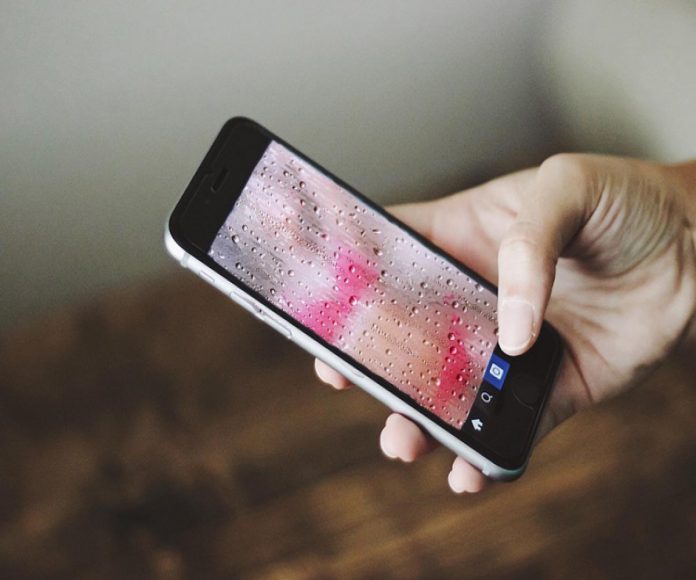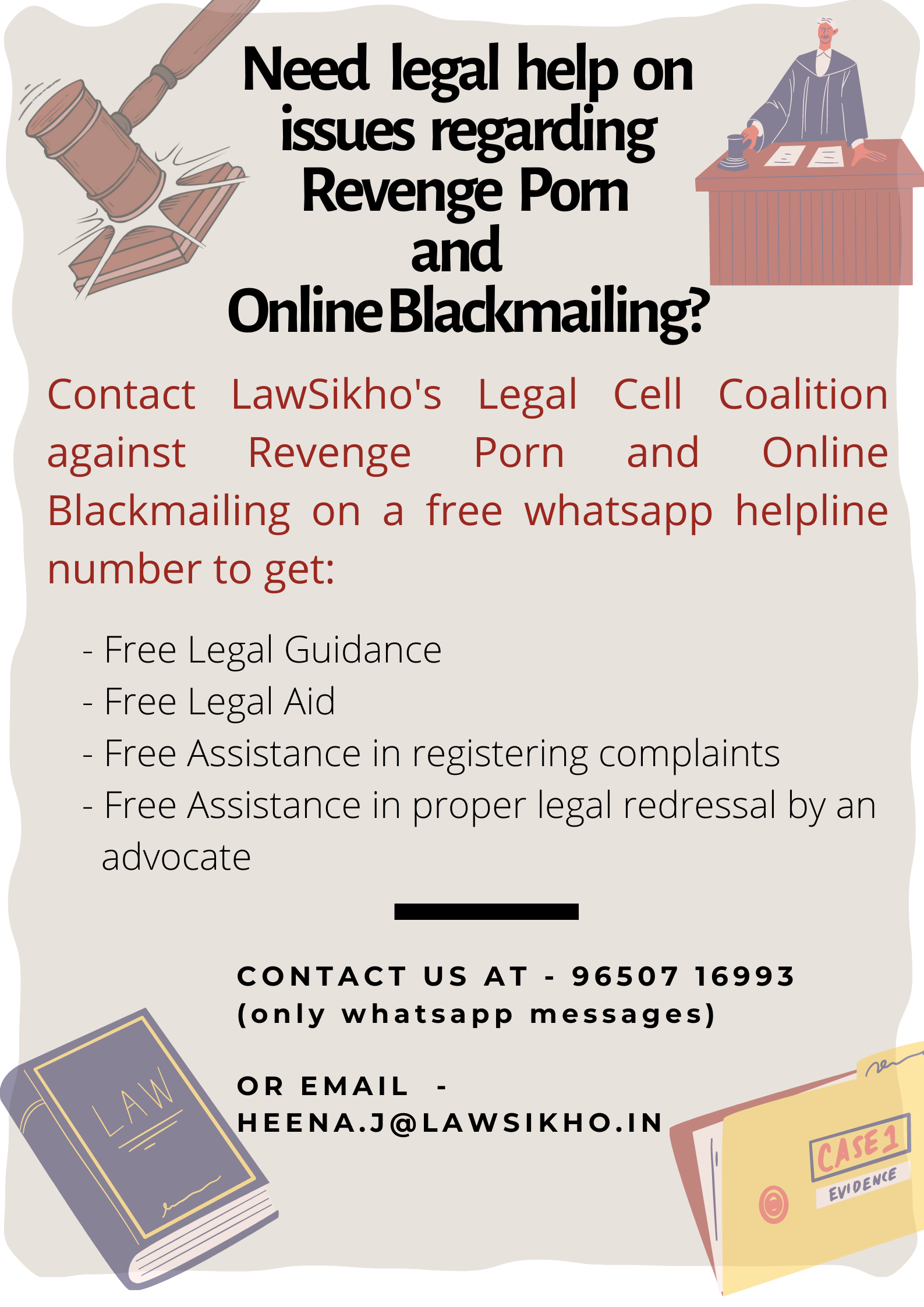This article is written by Oruj Aashna, a student of the University of Calcutta. The article covers the reasons why one should not store a private picture or video of someone, how to deal if such an image is stored in someone’s device, and the prevention measures.
Table of Contents
Introduction
It might be petrifying for an individual to discover that someone has his/her nude photo or video in their folder. Often, in such a situation, the victim remains silent about the event due to the fear of character assassination. However, being quiet about the wrong is the worst one can do. On the one hand, it will destroy the victim’s mental state and on the other hand will encourage the wrongdoer to do such an act in the future, nonchalant about the repercussions. Thus, being silent is not the right option here.
What steps can one take if a nude picture or video is stored on someone else’s device? Even if the person has not published/shared the image, one has the right to get the image deleted from their device if that violates privacy or is taken without consent. But before jumping into the measures, an individual and collectively, a society should comprehend the rigors of this pathetic act rather than humiliating and mortifying the victim. Human society will fail if we try to degrade the sufferer. The notion “defame the victim” is of utter shame itself.
The article takes two parameters into consideration. Firstly, when someone shares a video/image as a personal message, and secondly, if someone records or takes screenshots of you during video calls or someone without your knowledge records and takes a picture of you. However, it is not wrong or shameful to share nudes as an expression of sexuality with someone you love and trust, but it is wise to consider the implications and gravity of the act.
What is wrong with just keeping nudes of someone
Damage to Right to privacy
One might wonder what’s wrong if a nude image is stored in the device as they are not sharing or using it for an unlawful act. It is privacy that forbids the person from holding the photo, and if any such complaint is registered, it will end the offender in prison.
Let us understand the basics of privacy. Privacy means a state of being free from public attention to intrusion inter or interference with one’s act or decision.
In the M P Sharma or Kharaksingh cases, privacy was discussed as only “spatial privacy.” The term “spatial privacy” implies freedom from being physically disturbed. However, privacy is not just physical proximity; it is a state of mind.
Think of a situation where a person is enjoying “privacy” in concert despite the crowd. In contrast, even in isolation and plenty of spatial privacy, a person feels anxious and miserable. The same goes for the case we are talking about. A person whose explicit picture or video is on someone else’s device will not be in mental peace even if he/she is in an empty room. The kind of privacy an individual wants to enjoy as a right is not spatial privacy but an ability to feel free mentally.
If someone places a hidden camera in a bathroom or bedroom without your knowledge, then it is outright illegal and against the right to privacy. Similarly, taking a picture or recording someone doing a sexual act in a nude or semi-nude position in his/her “privacy” state is unlawful.
In contrast, if the picture is taken where the expectation of privacy is low, one may not be liable to click an image or video. For instance, someone clicking the picture on the beach or clicking a picture of celebrities in a public area is fine.
Misuse of technology
I recently came across a real story where two persons in a relationship shared pictures via Snapchat. Since Snapchat disables the image within a limited time and notifies the user if the screenshot is taken, they shared the nude images too. It came as an utter shock when she realized that the guy was taking screenshots of all her nude photos through a software application (readily available) that prevents Snapchat from sending notifications while screenshots are taken. It’s a pity to see how technology was invented for the convenience of humans and is not being used in a manner. Even the safest technology is not free of glitch. An application providing end-to-end encryption also has possible vulnerabilities present through which the hacker may invade personal data.
This is to note, clicking or recording someone in their private space comes under technology abuse. Also, hacking or accessing someone’s electronic device and taking out a personal picture is a crime and can be punishable under Section 72 of the Information Technology Act, 2000. Nevertheless, anything that results in the abuse of technology will have profound implications.
Absence of consent
Consent is one of the essential elements in this matter. It is the primary thing that carries the idea of willingness. If someone captures a photo or video in someone’s private premises without consent, it is against the will and is illegal. Even in public places where you notice someone clicking a picture of someone in public (say in a park) in an intimate position or in a situation where his/her private area is apparent, that person can ask to delete such pictures/recordings off the memory card.
Let’s take another situation, suppose a photographer takes a semi-nude photo that was taken of you in a public area without consent, where there was no expectation of “privacy.” In that case, the picture is the property of the photographer, and legally he/she doesn’t have to delete the image. But if a photo of you is being used commercially to make money, without your permission, then there is a right to demand the photo be taken down.
Can you ask to remove your image?
Yes, one can ask to stop recording or delete the recording (in a public place) from such a person’s device if it violates rights and is taken without consent.
Steps one can take in such a situation
Speak up!
If you find yourself in such a situation and are disturbed and mentally harassed due to constant battle in your mind, get out of the social stigma and confess to your close one (family, friends, etc.). Society plays a huge role in depreciating the risk of depression, suicidal thoughts, and mental harassment, which subsist in these situations. And even they will come up with an impeccable solution.
Make an attempt to take the picture/video down
If you know someone who has your private picture or video, ask to delete it and let them know about your privacy and security. Try not to intimidate the person. After the deletion of the picture/video, make sure the picture has been deleted everywhere from his/her device. If the person is not deleting the images/videos despite all these negotiations, take the next step.
Involve a lawyer or legal authority
If the person is resistant to deleting the nude video/ photo, ask a lawyer or any legal authority to handle the matter. The legal person will take appropriate action to delete the picture/video or mitigate the risk of getting published or shared with the public.
Note, one must have proof or reasonable incident to support the allegations.
Organizations that help
There are organizations online that help their clients to take down their intimate or personal pictures, video, recordings, etc. that are published online (for example, DMCA, NeedHelpNow.ca). Further, if someone discovers any nude image or video of themselves at a point in time, this support centre will help take down the picture.
Legal provisions to safeguard you in such a situation
Section 354C of the Criminal Law (Amended) Act, 2013
The amended Section 354C of the Criminal Law (Amended) Act, also known as the ‘’Voyeurism Section’’, criminalizes capturing and distributing women’s images in their private space.
The Privacy (Protection) Bill, 2013
The Privacy (Protection) Bill, 2013, deals with collecting, storage, destruction, processing, security, and disclosure of personal data. The bill bars interception of another person’s communication except in pursuance of an order by the Chief Privacy Commissioner. If someone collects, receives, stores, or processes data that is not following the bill, he/she shall be punishable with imprisonment and with a fine. The provisions of the said Bill give stress on privacy and implement strict liability on infringement of privacy.
Section 66E Information Technology Act, 2000
Section 66E of the IT Act,2000 prescribes a penalty for violation of privacy.
The provision shall be applicable if:
- any person who intentionally captures, publishes, or share the image that exhibits the private area of any person;
- the image is captured, transmitted, or published without the consent of the subject;
- the act results in violation of the privacy of the subject.
The person committing such offence shall be punished with imprisonment, extending to 3 (three) years or with a fine not exceeding Rs. 2,00,000 (Rupees two lac) or with both.
Section 67 of the Information Technology Act
Section 67 compels penalizing treatment to both production and publication of nude pictures/video. In a 2015 case in Mumbai, a man posted intimate videos of his ex-girlfriend on a social media messaging group without her consent.
In the said case, consensually recording such material was not prima facie guilty under Section 67. The criminal culpability here violated the girlfriend’s consent and privacy. Nonetheless, the man was arrested under Section 67 for transmission of sexual content and not for violation of consent and confidentiality.
Information Technology (Intermediary guidelines and digital media ethics code) Rule, 2021
The new rule which is in huge debate provides strict rules for intermediaries. The main objective of this provision is to prevent, detect, investigate and punish for an offence related incitement to offence pertaining to rape, sexually explicit material, or child sexual abuse material.
Conclusion
Personal information is the most sensitive and valuable for anyone. In the era of technology, each and everyone has access to digital modes and media. It is heart-rending when someone uses these mediums to store explicit pictures of another person without consent. There are sexual desires that everyone needs, but fulfilling those desires by taking nudes of someone is just ethically and morally wrong. Often people say that it’s a part of their human rights. But even then, if someone’s sexual desires are attained at the cost of anyone’s rights and mental peace, one should rethink before committing the act. Law can regulate or make laws to control the damage, but the root consists in the mindset.
Remember, it’s not an “obligation” to send nudes to anyone or involve in any sexual activity. It is essential to raise awareness and educate yourself about the potential risk before participating in any such action. There are cases where the nude was shared between couples, and even after the deletion, it got leaked.
The consequences the victim faces is out of anyone’s imagination. On top of that, if we see the victim as an instigator, then it’s a downfall in our probity. This brings down two points: firstly, it is not a taboo subject, and secondly, it’s not the victim’s fault. No one deserves to be shamed. The wrongdoer is encouraged because society is silent about this subject.
References
LawSikho has created a telegram group for exchanging legal knowledge, referrals and various opportunities. You can click on this link and join:
 Serato DJ Crack 2025Serato DJ PRO Crack
Serato DJ Crack 2025Serato DJ PRO Crack











 Allow notifications
Allow notifications


